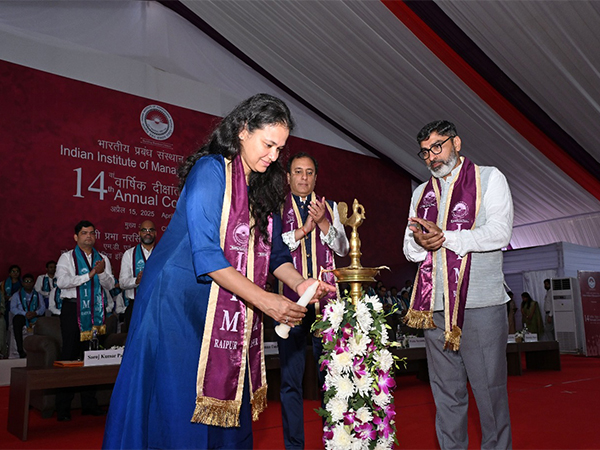No relief from hazardous air in Capital, as AQI in 'very poor' range
Nov 24, 2023

New Delhi [India], November 24 : The air quality in the national capital continued to hover in the 'very poor' category on Friday, with the Air Quality Index (AQI) recorded at over 350 in several areas, according to the System of Air Quality and Weather Forecasting And Research (SAFAR-India).
The overall AQI for the Capital was recorded at 388 at 7.55 am on Friday.
However, as per the pollution numbers recorded on Friday, the air quality did see a marginal improvement from the 'severe' category to 'very poor,' across several areas of the national capital, but continued to remain hazardous for residents.
The AQI in the Pusa area was recorded at 403 as of 7.55 am while IIT Delhi logged an AQI of 579.
Further, the AQI in the Lodhi Road area was recorded at 359 while the Delhi University area and the Airport (Terminal-3) area recorded AQIs at 386 and 398 respectively.
According to data shared by the Central Pollution Control Board (CPCB), the AQI in Anand Vihar was at 411 while those in Alipur, Wazirpur and RK Puram were recorded in the 'severe' range at 432, 443, and 422 respectively.
The Air Quality Index from 0 to 100 is considered 'good', 100 to 200 'moderate', 200 to 300 'poor', 300 to 400 'very poor' and from 400 to 500 or above 'severe'.
The AQI is a tool for effectively communicating air quality status to people in terms that are easy to understand. It transforms complex air quality data of various pollutants into a single number (index value), nomenclature and colour.
Following a significant improvement in the overall AQI in the national capital last week, the CAQM (Commission for Air Quality Management), on Saturday, revoked the restrictions that were imposed under GRAP 4, permitting trucks and buses except for BS-3 and BS-4 petrol and diesel vehicles to enter the city and lifting the ban on ongoing construction activities.
Earlier, on Tuesday, last week, the Supreme Court suggested that the farmers who engage in stubble burning be deprived of the Minimum Support Price (MSP) benefits as a part of the economic repercussions of their actions.
The top court made the observation during the hearing on a plea pertaining to rising air pollution in Delhi-NCR.

















